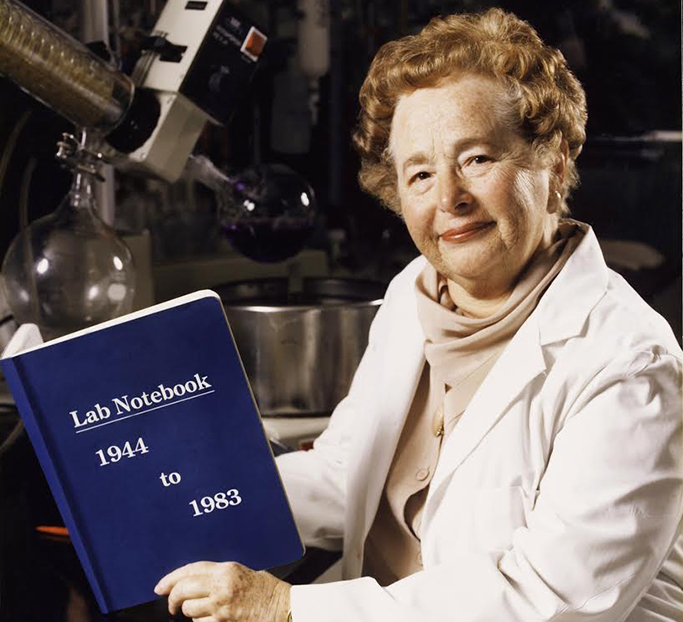Born in 1918 New York City to Jewish immigrants, Nobel laureate Gertrude Elion faced a deck stacked against her. As a Jewish woman, injustice beset her at every turn. Her childhood was defined by the Great Depression, which ravaged the nation and her parents’ hard-earned wealth. Yet, armed with incredible tenacity and intelligence, Gertrude wasn’t about to let anything deter her singular mission to help relieve suffering.
Recognized as brilliant since she was a child, in high school Gertrude skipped two grades, graduating at age 15 in 1933 to find a generous scholarship from Hunter College awaiting her. Her parents were ecstatic. “Among immigrant Jews, their one way to success was education,” Gertrude remembered. “Education is a Jewish tradition.” That same year, however, Gertrude’s grandfather died of stomach cancer. Watching his painful deterioration, Gertrude swore to study chemistry at Hunter and to devote her life to working towards a cure.
Her path set, she again rose to the top, despite relentless challenges. Though she graduated summa cum laude and Phi Beta Kappa from Hunter, being female and Jewish meant that every one of her 15 PhD applications was rejected. Struggling on the job market for nearly a year, Gertrude was only able to find a volunteer position in a chemistry lab where the company president enjoyed making anti-Semitic jokes. Still, she persevered, eventually working her way up to a paid position while also attending night classes. By the time she earned her Master’s Degree from New York University in 1941, World War II had opened new job opportunities for American women and Gertrude was hired by Dr. George Hitchings as a researcher at the pharmaceutical company Burroughs Wellcome.
In her 40 years at Burroughs Wellcome, Gertrude invented medications to cure nearly all leukemia in children; to make organ transplants possible; and to attack viruses without harming healthy cells, a feat the medical community had deemed impossible. Throughout her life, she won countless awards, including 25 honorary doctorates. Yet on October 17, 1988, when a reporter called to congratulate her on winning the Nobel Prize, she responded in disbelief, “Quit your kidding.” It was no joke: The Prize had just been announced in her and George Hitchings’ names. Even as the fifth female Nobel laureate in Medicine, helping people always remained Gertrude’s motivation. Asked about her Nobel win, she responded, “When you meet someone who has lived for 25 years with a kidney graft — there’s your reward.”



